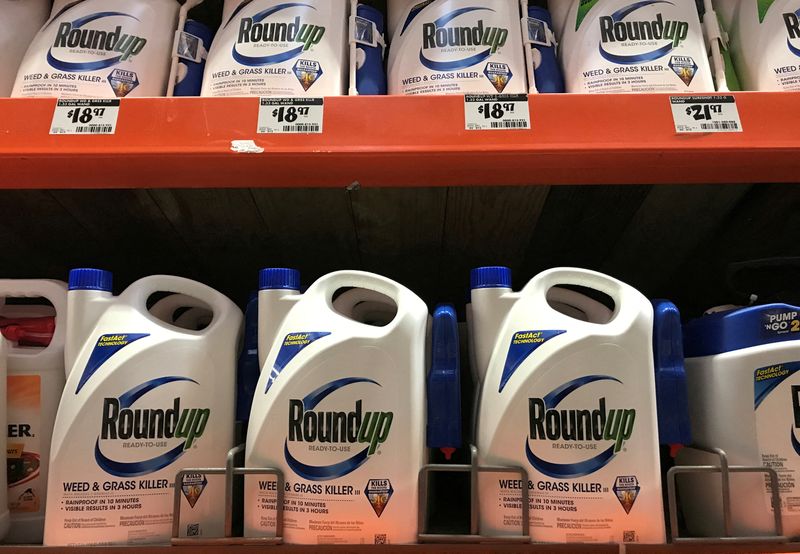By Peter Hobson
CANBERRA (Reuters) - An Australian court on Tuesday heard closing arguments in a class action lawsuit alleging that a weedkiller produced by Bayer (OTC:BAYRY) caused cancer, the first such case in Australia to reach this stage.
Bayer has already paid billions of dollars to settle claims that exposure to its glyphosate herbicide, Roundup, damaged health, in most cases by causing non-Hodgkin lymphoma, a blood cancer.
The company faces more than 50,000 claims in the United States, with the latest ruling requiring it to pay $2.25 billion to a single Pennsylvania man and driving its share price down.
The Australian lawsuit is one of relatively few outside the United States and is a test case for the country, where Roundup is widely used. It is against subsidiaries of Bayer and brings together more than 1,000 claimants.
If the judge at the Federal Court in Victoria rules in the coming months that Roundup caused lymphoma, the court will then consider whether Bayer was negligent regarding the risks its products posed and should pay damages.
Bayer says Roundup and glyphosate are safe. It said it "fully stands behind its glyphosate-based products, which have been used around the world for almost 50 years."
Damages are likely to be smaller than in the United States, a spokesperson for Maurice Blackburn, the firm representing the claimants, said. But a Maurice Blackburn lawyer has said each person should get a "significant" sum.
The lead claimant is 41-year-old Kelvin McNickle, who says he used Roundup to spray weeds for over two decades on his family's property and while working for a vegetation management company. He developed lymphoma aged 35.
His lymphoma recurred shortly before the trial began and he is currently undergoing treatment, Maurice Blackburn said.
Four other cases have been filed in Australia. Three have been permanently stayed by the Federal court and the fourth, another class action, has been paused pending the outcome of the McNickle claim, Bayer said.
MONSANTO
Roundup was originally produced by U.S. agrochemical company Monsanto (NYSE:MON), which Bayer acquired for $63 billion in 2018.
The product has been under scrutiny since the World Health Organization's cancer research agency concluded in 2015 that glyphosate was probably carcinogenic to humans, though without concluding whether it posed a risk in real world use.
Bayer agreed in 2020 to pay up to $9.6 billion to settle ongoing Roundup lawsuits in the United States but did not get court approval for an agreement to prevent future cases.
Bayer said in its most recent annual report that it faced 31 Canadian lawsuits relating to Roundup, including 11 seeking class action certification. It did not mention any other claims outside the United States.
The company has replaced glyphosate with new active ingredients in its products for household use in the United States to reduce the risk of litigation, since most claims have come from home users.
It continues to sell glyphosate-based weedkillers to farmers, who rely on it heavily.
Regulators including in the United States continue to allow Roundup to be used, with the European Commission last year renewing glyphosate's approval for another 10 years.

Bayer has a mixed record defending its product in U.S. courts, winning 10 of the last 16 Roundup trials.
(This story has been corrected to clarify that Bayer has changed the household version of Roundup, and not phased out sales of the household version, in paragraph 15)